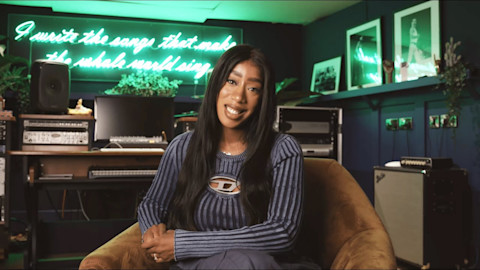At this point, few people paying attention to the internet or the Billboard charts would be surprised by K-pop’s ongoing global ascent. But the edgy young girl group BLACKPINK recently managed to shock the pundits and general public alike with their sudden explosion in popularity.
BLACKPINK’s success represents the latest generation in Korean pop’s gradual, trial-and-error expansion into the Western market, powered in no small part by the infrastructure, institutional knowledge, and world-class talent of their agency, YG Entertainment. For any artist attempting to conquer a foreign market, there are important lessons to be learned: Namely, the importance of perseverance, cross-cultural collaboration, and aligning yourself with the right people.
“DDU-DU DDU-DU,” the quartet’s latest and most bombastic single, debuted at No. 55 on the Billboard Hot 100 in June—the highest position ever achieved in America by a female Korean act, and the first to do so with a primarily Korean-language song. Meanwhile, BLACKPINK’s debut EP, Square Up, landed at No. 40 on the Billboard 200. The release skyrocketed the group’s popularity on Spotify, more than doubling their global monthly listenership to a steady plateau of nearly 4.5 million users, and bringing them well within the top 200 most-followed artists on the platform. What’s more, the four young women of BLACKPINK also dominated on YouTube, where “DDU-DU DDU-DU” racked up over 36 million views within its first day of release. That made it, at the time, the highest 24-hour tally for any music video this year, and the second-highest in YouTube history at the time—just a notch beneath Taylor Swift.
While their quick ascent surprised some Western observers, their success is hardly an anomaly; it's part of a larger K-pop explosion in the U.S. that has been many years in the making. BTS have become bona fide stateside stars, with their two most recent releases — Love Yourself: Tear and Love Yourself: Answer — both debuting at No. 1 on the Billboard album chart, the first- and second-ever Korean records to reach that peak. In many ways, the trend-setting achievements of BLACKPINK and BTS very much speak to this moment in American culture, where multiculturalism and diversity have major appeal.
"We got ‘Despacito’ in 2016, 2017; and now we got K-pop acts charting on Billboard," says Danny Lee, Head of Talent and Partnerships at YG Entertainment USA, the Seoul-based agency’s Los Angeles outpost and main Western nexus. "We are now in the most progressive time in the history of entertainment! You even see it in movies from Black Panther and Crazy Rich Asians. And that’s very important for [this K-pop] narrative, because Latin America is neighboring and attached to the hip of the United States, and it took ‘em years to get a ‘Despacito.’ And for K-pop to come the year after, but skipping an entire ocean? That’s progress, and we have to respect that the Latin community helped pave the way, undoubtedly."
The K-pop explosion
Lee’s got a unique perspective, not just within YG or the broader K-pop industry, but pop culture in this era of globalization as a whole. As a Korean-American raised across some dozen homes from the Midwest to Hawaii, Lee rolled with his family’s nomadic life in the Christian ministry until finally settling in Los Angeles in 1998, where as a teenager he submersed himself in the skate, graffiti, b-boy, and DJ scene within the local Mexican community. It was there that he met his mentor and music manager Polo Molina, who took him under his wing, and at age 14, Lee began assisting with promotion for one of Molina’s earliest acts—The Black Eyed Peas.
Thirteen years and several world tours later, Lee began to reconnect with his roots at the behest of Peas mastermind will.i.am, who had started collaborating with BLACKPINK’s predecessors at YG, the globally trend-setting girl group 2NE1.
“G-DRAGON is what did it for me,” Lee says, recalling his first dive down the Korean pop rabbit hole. “After seeing videos for “One of a Kind” and “Coup d’etat,” I was like, holy shit. K-pop, to me, is supposed to just be soft, very colorful, vibrant… So I see him and I’m like, who the hell is this guy? How’ve I not known about this? This is more edgy.”
That experience hits on exactly why, despite BLACKPINK’s unprecedented surge for such a young girl group, it does make sense that Korea’s newest global sensation comes courtesy of YG Entertainment. The powerhouse agency, renowned for its bold, hip-hop-based approach, has long been a driving force in the evolution of Korean pop, in both its home market and global export. Much of K-pop’s current Western success owes to the trails blazed by YG’s previous generation of artists, most notably 2NE1, BIGBANG, and their members’ prolific solo careers. Boy-band quintet BIGBANG were selling out back-to-back shows at 12,000-capacity venues in Los Angeles and London as early as 2012, taking home critical acclaim and YouTube view totals that were then unmatched by any other Asian group. 2NE1, meanwhile, set the record for the best Korean ranking on Billboard’s albums chart in 2014, a title they held for years, while frontwoman CL remains the only female Korean soloist to ever place on Billboard’s Hot 100 (with 2016’s English-language “LIFTED”). Members of both groups, including G-DRAGON and TOP, were recognized worldwide for their artistry, and were invited onto Western projects featuring the likes of Diplo, Skrillex, and M.I.A. And lest we forget, even PSY’s heyday, spent saddled atop the most popular piece of content on the internet, came branded with the YG imprimatur.
Giving the musicians room to create
In fact, the label’s name is etched deep upon the histories of Korean pop and hip-hop. In-house hitmaker Teddy—whose many smashes include “DDU-DU DDU-DU” and the rest of BLACKPINK’s singles—was originally an artist on the label himself, dating back to the 1998 debut of his group 1TYM (“one time”), a leading act among the first wave of Korean hip-hop. And founder-impresario Yang Hyun-suk (formerly Yang Goon, hence the label name) enjoyed his first run at superstardom as one-third of Seotaiji and Boys, the group widely credited with innovating and popularizing what we now know as K-pop in the early ‘90s.
“Let’s be real: K-pop, in terms of a general category, has this brand recognition of being a manufactured and polished product, with lots of processes that support that kind of [public perception],”,” Lee explains. “But if you look at who’s the least manufactured, and where’s the artistry and the raw passion, soul and edge, I feel that YG sticks out versus the rest of K-pop.”
BLACKPINK is, in many ways, the latest iteration of the company’s storied legacy, and they’re well positioned to help advance YG and K-pop for years to come. The group’s stats on Spotify provide one of the clearest radar-gun reads on their incredible momentum: Despite having less than a tenth as many tracks on the service, BLACKPINK are just barely behind BTS in terms of global monthly listener count. And those numbers are twice the size of the third most popular Korean act’s listenership on the platform.
Cultural fluency translates to broader appeal
Lee’s proud of these figures, but he’s not surprised—he relates it to his experience with the last big global sensation he helped bring into motion.
“What worked really well for The Black Eyed Peas was that will.i.am is African-American; apl.de.ap’s from the Phillipines; Taboo is Mexican and Native American; and Fergie’s caucasian. So when they sold out multiple world tours, that was no magic formula—it was just [that], hit records implied, anywhere they went, anyone in the audience identified with at least one of them.” He sees BLACKPINK’s appeal as a variation on that theme. “You’ve got Jisoo from Korea, you’ve got Lisa from Thailand, you’ve got Jennie who grew up in New Zealand, and you’ve got Rosé who grew up in Australia. So if you look at it from an APAC perspective, they have some resemblance to what made The Black Eyed Peas so special—[the members] cover an entire territory.”
While that helps BLACKPINK clean up in markets like Australia and Thailand, Lee notes that three of their top ten markets—USA, Mexico, and Brazil—are in the Western hemisphere. To that end, three of the four members already speak fluent English (Thai member Lisa speaks four languages altogether), and Korean member Jisoo’s English is rapidly improving. “So the X factor is, BLACKPINK is going to be the first K-pop group who can interview, record, and perform in both Korean and English, as well as Japanese—and then Lisa can also do her thing in Thai. No other K-pop group’s got that.”
Granted, when Lee looks to the future, he’s in no rush to localize or translate K-pop beyond recognition—nor does he see a need to.
“K-pop’s still very much the integrity of what Korean culture is currently, today,” he says. “I think it’s important to share that culture, and have it accepted and embraced [on its own terms]. So in the future, we’ll be touring, definitely, and becoming more visible. I think BTS has done a great job—they’re on TV, they’re doing the interviews. And I think there’ll soon be a time when we’ll do that too. But we’re also being very strategic in making sure that we deliver to our core audience first, which is Asia. Yes, there are more fans and audiences to address, and that’s absolutely important! But at the same time, let’s recognize that core, and appreciate that, because they’ve been with us since day one.”
And that’s maybe the most interesting takeaway from the BLACKPINK sensation: By no longer caring to follow or cater to Western sensibilities, K-pop has begun to lead.
—Jakob Dorof






